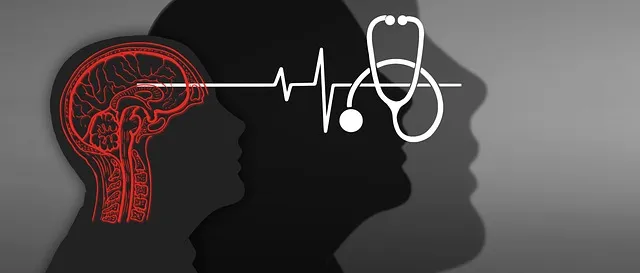Kaiser Permanente mental health Aurora prioritizes harm minimization through comprehensive risk assessment, combining evidence-based practices with Mind Over Matter principles. Their personalized plans emphasize early intervention and risk management, integrating tools like Trauma Support Services and Crisis Intervention Guidance. They proactively address staff burnout with programs like Mental Wellness Journaling, Exercise Guidance, and Communication Strategies. Regular monitoring, collaborative reviews, and data-driven insights ensure the plan's effectiveness. By staying ahead of emerging challenges through continuous improvement, Kaiser Permanente mental health Aurora fosters a safe, supportive environment for all.
At Kaiser Permanente Aurora, risk assessment is a cornerstone of mental health care, ensuring patient safety and well-being. This article delves into the essential practices of harm minimization planning within this healthcare organization. We explore strategies for identifying and evaluating potential risks, guiding the development of comprehensive mitigation plans. Additionally, we discuss implementation best practices, continuous improvement through regular reviews, and adaptation for effective risk management in mental health settings, specifically at Kaiser Permanente Aurora.
- Understanding Risk Assessment in Mental Health Care at Kaiser Permanente Aurora
- Identifying and Evaluating Harm Minimization Strategies
- Developing a Comprehensive Harm Minimization Plan
- Implementing and Monitoring the Plan: Best Practices for Success
- Continuous Improvement: Regular Review and Adaptation for Effective Risk Management
Understanding Risk Assessment in Mental Health Care at Kaiser Permanente Aurora

At Kaiser Permanente Aurora, understanding risk assessment is paramount within mental health care services. This involves a comprehensive evaluation of patients’ psychological and social factors to identify potential hazards and predict adverse outcomes. By employing evidence-based practices and Mind Over Matter principles, healthcare professionals aim to develop effective harm minimization plans tailored to individual needs. Such plans focus on early intervention, risk management strategies, and confidence-boosting techniques to empower patients in maintaining their mental wellness.
Kaiser Permanente Aurora’s commitment to excellence is reflected in its Mental Wellness Coaching Programs Development, which integrates advanced risk assessment tools with innovative coaching methodologies. This holistic approach ensures that patients receive personalized support throughout their journey towards improved mental health. Through these initiatives, Kaiser Permanente Aurora demonstrates its dedication to transforming lives by fostering resilience and promoting a culture of psychological well-being among its community.
Identifying and Evaluating Harm Minimization Strategies

Identifying and evaluating harm minimization strategies is a critical step in risk assessment for mental health organizations like Kaiser Permanente mental health Aurora. This process involves thoroughly examining existing policies and procedures to pinpoint potential risks and hazards, followed by the implementation of tailored interventions designed to mitigate these risks. By adopting evidence-based practices, such as Trauma Support Services and Crisis Intervention Guidance, institutions can create safe environments that foster healing and recovery.
Effective harm minimization strategies not only encompass crisis intervention techniques but also proactive measures like conflict resolution training for staff. Equipping employees with the skills to manage and de-escalate conflicts through methods like those offered in Conflict Resolution Techniques enhances overall safety and well-being within the organization. Regular reviews and updates of these strategies ensure they remain relevant, effective, and aligned with best practices in mental health care delivery.
Developing a Comprehensive Harm Minimization Plan

Developing a comprehensive harm minimization plan is a proactive step that healthcare organizations like Kaiser Permanente mental health Aurora prioritize to ensure patient safety and foster a supportive environment. This strategy involves a multifaceted approach, incorporating Mental Wellness Journaling, Exercise Guidance, and Communication Strategies tailored to address potential risks and promote mental well-being among providers. By integrating these practices into their daily routines, healthcare workers can prevent burnout, enhance resilience, and improve overall job satisfaction.
The plan should include clear guidelines for recognizing and managing stress, anxiety, or any signs of deterioration in mental health. Regular check-ins, peer support networks, and accessible resources like a Mental Wellness Journaling program can facilitate open dialogue and encourage professionals to prioritize their well-being. Additionally, structured Exercise Guidance sessions or breaks can help providers recharge, reduce tension, and maintain a healthy work-life balance, ultimately contributing to better patient care and a more positive healthcare culture.
Implementing and Monitoring the Plan: Best Practices for Success

Implementing a harm minimization plan is just the first step; effective monitoring and ongoing evaluation are key to its success. At Kaiser Permanente mental health Aurora, we advocate for regular review meetings involving all stakeholders, including healthcare professionals, support staff, and clients, to discuss progress and identify areas for improvement. This collaborative approach ensures that the plan remains dynamic and responsive to evolving needs.
Leveraging data-driven insights is crucial. Tracking key performance indicators (KPIs) related to client outcomes, such as symptom reduction and engagement in therapy, allows for evidence-based decision making. Additionally, integrating Social Skills Training and Mental Health Education Programs Design into the monitoring process can foster self-esteem improvement and better coping strategies among clients. Regular feedback loops and adaptive planning based on these insights are best practices for maximizing the plan’s effectiveness.
Continuous Improvement: Regular Review and Adaptation for Effective Risk Management

At Kaiser Permanente mental health Aurora, we understand that effective risk management is an evolving process that requires continuous improvement. Regularly reviewing and adapting our strategies ensures that we stay ahead of emerging challenges and best support our clients’ mental wellness. This proactive approach is a cornerstone of our Risk Management Planning for Mental Health Professionals, where we prioritize the latest research and industry standards to enhance our practices.
Through regular assessment, we identify not only potential risks but also successful interventions, which informs the development of Mental Wellness Coaching Programs. By continually refining our processes, Kaiser Permanente mental health Aurora ensures that we provide a safe, supportive environment for all individuals seeking our services. This commitment to Risk Assessment for Mental Health Professionals guides us in creating a dynamic and responsive framework that prioritizes harm minimization and continuous improvement.
Risk assessment and harm minimization planning are essential components of providing safe, effective mental health care at Kaiser Permanente Aurora. By understanding the unique risks within this healthcare setting and implementing comprehensive strategies, such as identifying and evaluating harm minimization techniques, facilities can develop robust plans tailored to their specific needs. Continuous improvement through regular review and adaptation ensures that risk management remains dynamic and responsive to evolving challenges in Kaiser Permanente mental health Aurora services.






